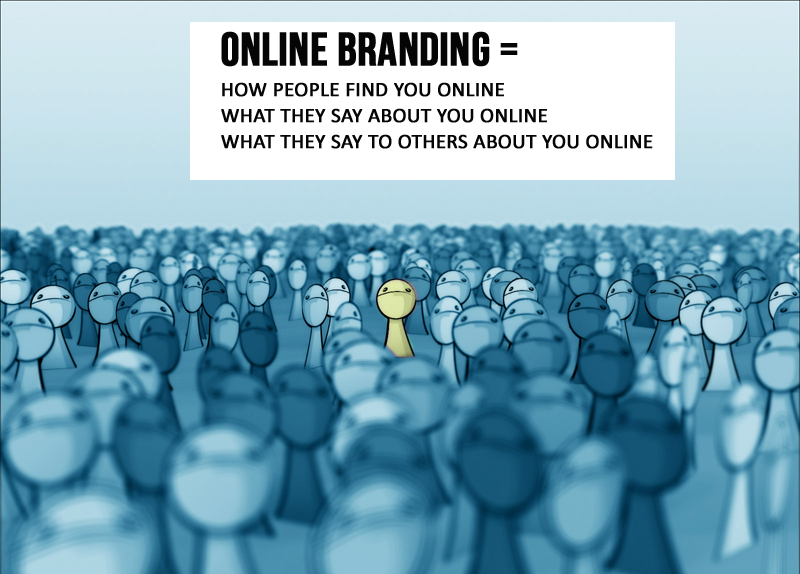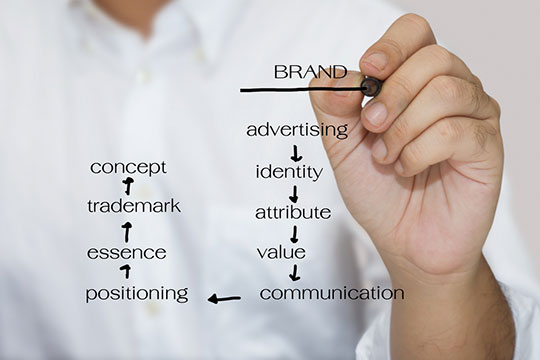Online Marketing and Branding – How to Tread the Thin Line and Get it Right


By Joey Perera
Online Branding and marketing are the pillars that promote your company or business and give it a face amongst your target audience. Thanks to their close similarity, these two concepts are often confused and interpreted the wrong way.
It’s common to hear business owners talking about:
- Color schemes, logos, and website design
- Social popularity, links, Videos and brand mentions
- Ad campaigns, search engine visibility and other promotional efforts
In as much as the above look like branding key points, the reality is they are marketing concerns and should never be mixed up. In light of this, it’s important you distinguish clearly what constitutes branding and marketing.
By definition, branding refers to the culture and the message that penetrates and rules your entire business processes. Marketing on the other hand comprises the tools and processes used to promote your business. These may include pay per click, search engine optimization, local search, social media, and mobile.
What Businesses Get Wrong about Branding
As mentioned earlier, marketers and business professionals tend to mix up branding and marketing. These misconceptions hinder full optimization of the two to the disadvantage of the business. The following are some of these misunderstandings:
Branding is Similar to Promotion, Marketing, and Advertising – While this may seem an intelligent classification, the reality is branding is much deeper than marketing. It establishes on your message, your voice, and your personality as opposed to marketing which only communicates your message and brand personality.
You are the Final Determinant on the Fate of Your Brand – Inasmuch as you have a say in setting the tone and guidelines for your brand, you are not the final man in the game, rather the customer is. How the customer perceives your brand determines the extent of the influence and impact it has on them.
Branding is a Methodological Approach – It is true that what can be measured can be managed. When it comes to branding, there is no one-size-fits-all. Businesses have unique needs and identities and as such no two companies are alike. The branding process that yields success for one business may not register the same for another and this is why you need a customized experience.
How to Establish the Right Branding Strategy
Creating and establishing a strong and authoritative brand, requires setting up the right framework and this can be done by asking some fundamental questions. Below is a pathway you can follow to help you brand the right way.
What is Your Purpose – Expectedly, this is the first question you need to ask yourself. Answered correctly, this question will clarify why you do what you do and take you to the core of your business. Look at the following areas:
- What was your motive behind building the business
- Why are you targeting a specific audience
- Why does it concern you to get things done the right way
 The answers you generate from these questions will help you map out the purpose of your business.
The answers you generate from these questions will help you map out the purpose of your business.
What is Your Brand – This question gets to your voice and personality and helps you attach values, ideas, and messages to the skeleton that supports your business.
Identify the voice you want to use for your brand, how you want to be perceived by your target audience; corporate, casual, formal, or simply approachable and whether you will be able to sustain your identity throughout the life of your brand.
Your target market is looking for a consistent and solid identity they can build their trust on hence the need to stay true to your brand. This is what brings customer loyalty.
Define Your Value System – Values matter in business and understanding who you are can give you a greater insight into your value system. Put down and define these values with your business in perspective. When a customer is looking for a brand they want to be associated with, one of the key things they look at is the value system.
Look at values as principles you wish to live by, be identified with, and the standard of measure in your various business processes including customer service.
Outline Your Culture – Culture is the bedrock of your integrity as an organization. Employees, customers, suppliers, and other stakeholders are attracted to a culture that is passionate, productive, and cohesive because it makes businesses stronger and their processes manageable. Establish a culture that you are proud to nature as a business.
Adequately Communicate Your Brand to Your Target Market – This is the ultimate branding stage where marketing comes in. As a business owner, you have to make a decision after market research and analysis on how you would like to create awareness for your brand. This involves the “where and how” of marketing.
When planning your communication strategy, align it with your mission statement, the value proposition of your business, the platforms to use, and the appropriate media for each one of them as well as your call to action.
Remember that branding is not a one-off process that you do and forget about, but rather an ongoing effort that percolates through your culture and business processes and one which requires dedication in order to work.
Author Profile
- Hello, Its Joey here, the Senior SEO, Content & Social Media Analyst at ClickDo. It’s my pleasure to welcome you to my SEO Diary.
Latest entries
 Social MediaMay 28, 2016Using Twitter for marketing – With over 300 million active users
Social MediaMay 28, 2016Using Twitter for marketing – With over 300 million active users Digital MarketingMay 21, 2016How Google Analytics Can Help You Craft a Solid Marketing Strategy
Digital MarketingMay 21, 2016How Google Analytics Can Help You Craft a Solid Marketing Strategy Social MediaMay 6, 201610 Appropriate Ways To Use #Hashtags In Social Media Marketing
Social MediaMay 6, 201610 Appropriate Ways To Use #Hashtags In Social Media Marketing BusinessApril 30, 2016How To Keep You Organized For Online Success
BusinessApril 30, 2016How To Keep You Organized For Online Success


